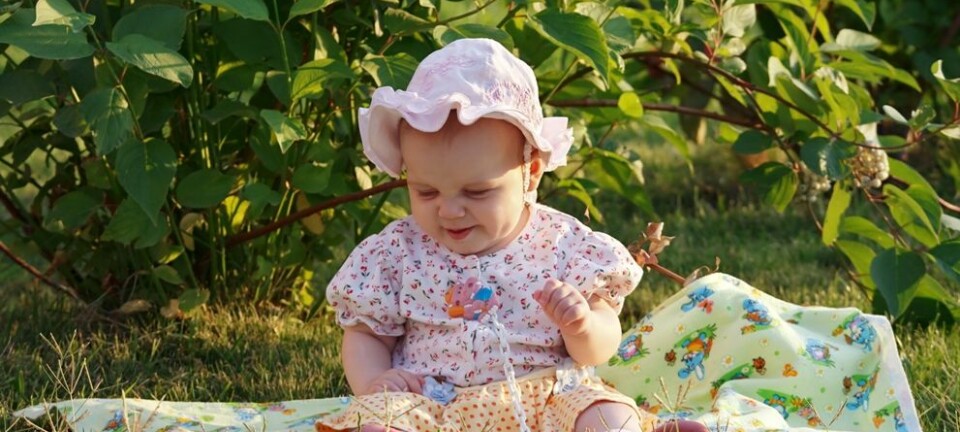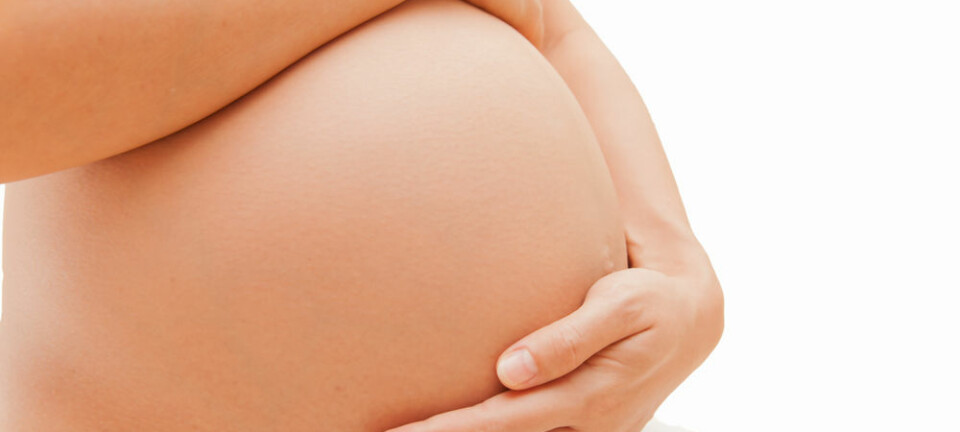
Heavier babies become more trusting adults
The more you weigh at birth the more trusting you are as an adult, shows new research.
Adults who weighed more at birth grow up to be more trusting, display less impulsive behaviour, and lose their virginity later, suggests a new study.
A high birth weight generally reflects healthy conditions during foetal development, which may explain the results, say two of the researchers behind the new study published in the journal Psychological Science.
"We know that a tough and volatile environment in a person's first five years of life can make people less trusting and more impulsive. Perhaps something similar is at play here, but in the embryonic stage," says co-author Michael Bang Petersen, professor in the Department of Political Science at Aarhus University, Denmark.
The new study reviewed results from several published studies that together reveal a correlation between social trust, impulsivity, sexual activity, and birth weight.
Social trust is created during pregnancy
Initially, the two researchers looked at data from 1,214 Danes as part of an international research project, called The European Social Survey.
Here they could see the participants' birth weight and compare it with their levels of trust--measured as the extent to which participants felt that they can rely on other people on a scale of zero to ten.
The participants who had been the heaviest at birth were the most likely to have higher levels of trust, according to the ten-point scale.
The difference in trust between the heaviest and lightest baby was not huge--around seven percentage points--but it was enough to suggest that social psychology is formed during the embryonic stage of development, say the researchers behind the new study.
High birth weight and delayed sexual activity
In the second part of the study, the researchers used data from another large project, the Danish Longitudinal Survey of Children, which included more than 3,300 participants aged 15 years. These participants were also asked to what extent they trust people on a scale from zero to ten, and whether they were sexually active.
At the same time, the parents were asked to judge their child’s level of assertiveness and impulsive behaviour.
The researchers saw that the heavier new-borns were more trusting as adults and became sexually active later.
"Those who have low confidence in others, are also more impulsive and loose their virginity earlier. We can’t say what the precise conditions are during pregnancy that lead to these symptoms, but the results indicate that a part of people's expectations of the world are already created during the embryonic stage," says co-author Associate Professor Lene Aarøe from the Department of Political Science at Aarhus University.
Results backed by theory of evolution
From an evolutionary perspective, it makes sense that our biology is preparing us for our environment, says Petersen.
"If you grow up in a world where you don’t know what to expect, it's smart to be suspicious in order to avoid being cheated. Animals and people who adapt to their environment have a better chance of survival," he says.
The evolutionary explanation is very plausible, says Professor Jacobus Boomsma from the Centre for Social Evolution, the University of Copenhagen, Denmark.
"It’s very likely that a low birth weight, caused by inadequate nutrition during foetal development for example, is associated with epigenetic changes that affect our behaviour,” says Boomsma, who was not involved in the new study.
According to him, this could be manifested in reduced investment in long-term social gains, even though it could be profitable in the long-term.
"Our biology can adapt during the embryonic stage to the possibility of an unsafe world where one needs to do think about survival from day to day. This type of behaviour is partly supported by animal studies and stems from a recognised part of the theory of evolution," says Boomsma.
-----------
Read the Danish version of this article on Videnskab.dk
Translated by: Catherine Jex









